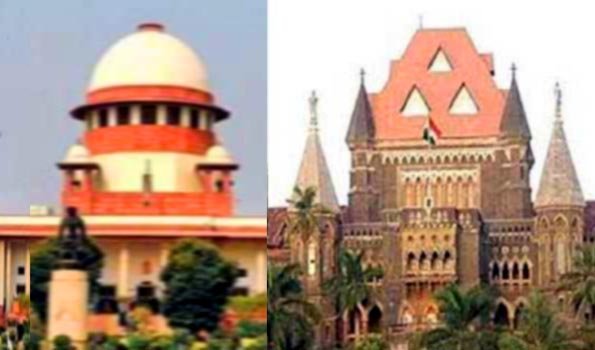New Delhi, May 27 (UNI) The Supreme Court lauded an interim order passed by Justice Sharmila U. Deshmukh of the Bombay High Court in a decades-old family property dispute, describing it as “very fair, just and equitable”, while dismissing a Special Leave Petition (SLP) filed against the same.
A Bench of Justice Surya Kant and Justice Dipankar Datta on Monday refused to entertain the SLP challenging the Bombay High Court’s order dated April 30, 2025, which lifted the lis pendens restriction on a disputed property in Mumbai.
The High Court had observed that both parties had already acted upon an interim arbitration award from 1975, and the lis pendens had outlived its purpose.
The Supreme Court praised the quality of the High Court’s reasoning and writing.
Justice Surya Kant remarked during the hearing, “Absolutely correct in law. One of the best judgments… there are some torturous judgments that you read, but this is one I really enjoyed. Beautifully written judgment.”
Justice Kant further shared that he had inquired with Justice Datta, who previously served as Chief Justice of the Bombay High Court, about the judge who authored the order. Upon learning that Justice Deshmukh had come from the Bar and had been recommended by Justice Datta, the Bench expressed appreciation for her legal acumen.
During the brief proceedings, Senior Advocate Siddharth Dave appeared for the Petitioners, while Senior Advocate Ranjit Kumar appeared for the Respondents but did not need to make any submissions, as the Court found no merit in the SLP.
The dispute relates to a property in Mumbai allotted to one family group under the 1975 interim award. The Petitioners, who had also received properties under the same award, argued that lis pendens should continue since an appeal related to their dismissed suit was still pending.
However, the High Court had held that both parties had already enjoyed the benefits of the award many properties had been alienated or surrendered, including by the Plaintiffs themselves.
The only remaining dispute pertained to the valuation and monetary compensation, not any real right to immovable property. Thus, the doctrine of lis pendens was no longer applicable.
The Supreme Court concurred with this view and stressed that the High Court’s arrangement was interim in nature and would not affect the merits of the appeal still pending.
The Bench further clarified that its own observations would also have no bearing on the merits of the case.
Additionally, the Court granted liberty to the parties to approach the High Court for an expedited hearing of the pending appeal.











